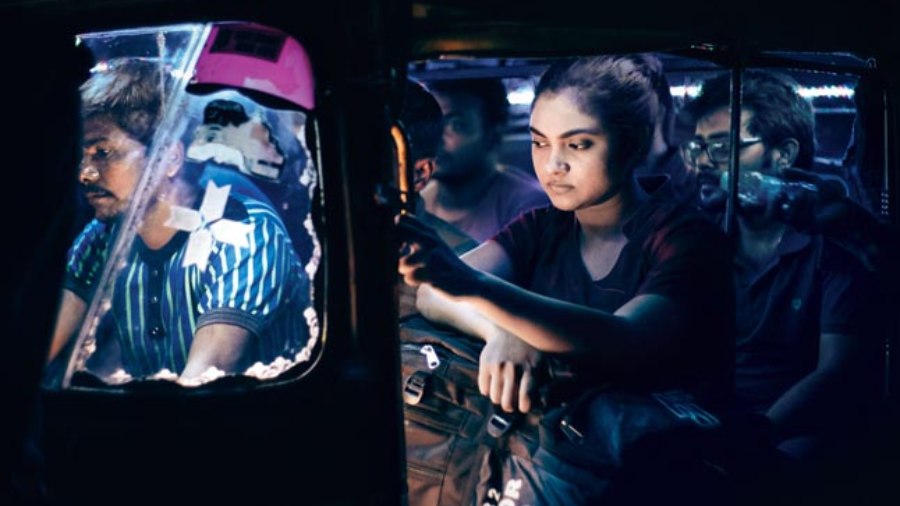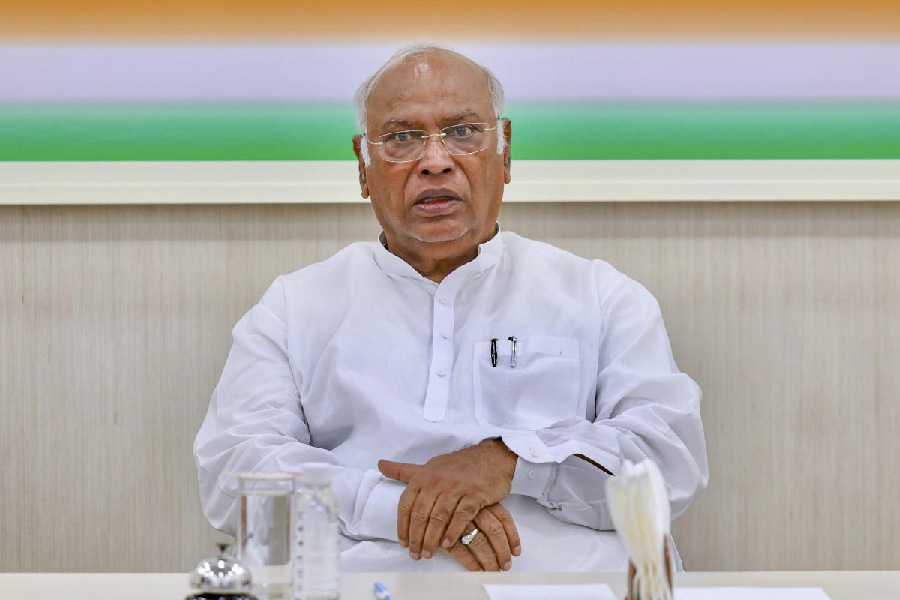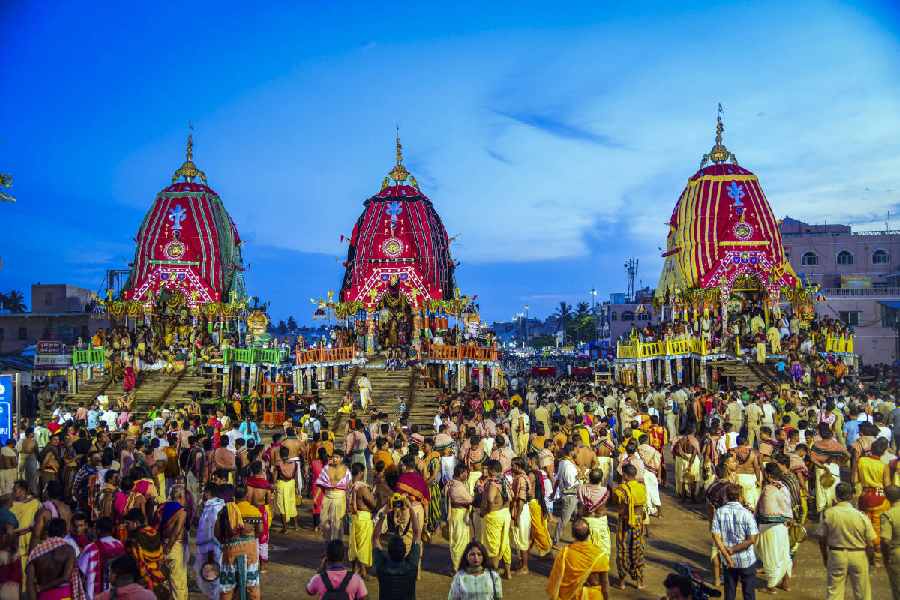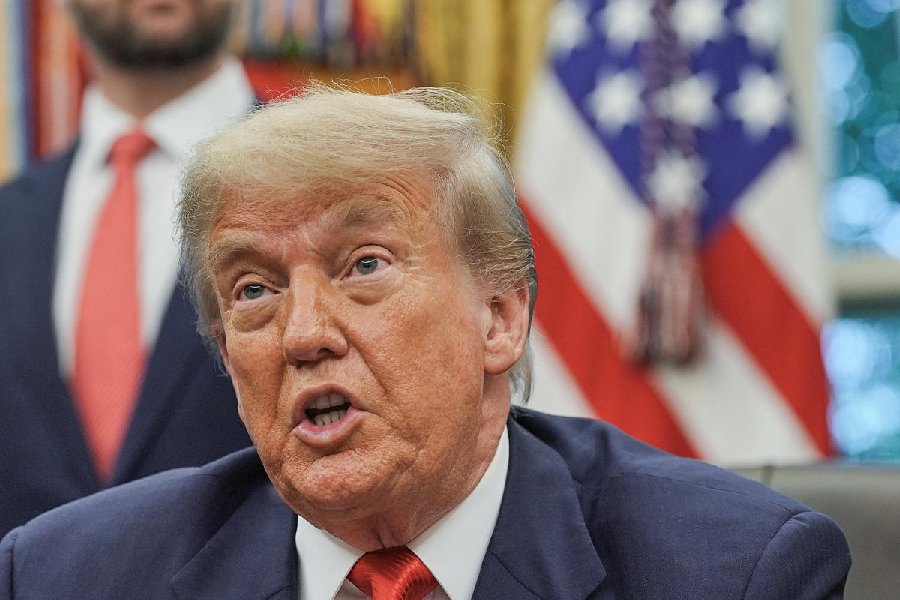Once Upon a Time In Calcutta by Aditya Vikram Sengupta
It has been more than a year since the film has been doing the rounds of major festivals. How does it feel?
It obviously feels great. There is no better validation for a film than audience response and response from film festivals. It is a reassurance that what we are doing, we are doing in the right way. We will continue to tread this path and try to make better films.
It’s been almost four years since the making of the film. Has your perception of it changed in any manner?
Absolutely. My perception of the film has been changing since the day I started writing it. The first draft that I have written of the film is very different from the final film. And I am absolutely okay with it. A film is a reflection of our own personality and how we process the world around us. That is why the material also changes. I let it change. I am not stubborn about trying to keep it as it is. After we started, in four years a lot of things have changed. Covid happened and political views have changed. I just kept it open to evolution.
This is your third film and in all your films you have told stories entwined with the city, its people and the people from the Bengali community to be specific. What do you think appealed to the global audience and gave it the kind of reception it got and is getting?
I won’t be able to answer that. A lot of things appeal to people. For me, making films is a way to process life. It is not something I do because I have to do it. It is not my career as such. Of course, it is my artistic career. It is a constant reaction of my body and mind to everything that happened to me since the day I was born. People have different processes to journal things; the easiest way for me is to make a film. It allows me to go places, interact with people, understand communities, understand characters and that is a very enriching process for me. That’s the reason I make films.
Then where it goes, who the audience is, that’s something that comes later. That is not my area of work. That’s something that a producer should do. But I know that the Indian concept of a producer is completely different. Producers don’t really create markets and create artistes. The market should be customised depending on the maker. Unfortunately, that still doesn’t happen in our country.
Despite the popularity of art house films or parallel cinema in Bengal, your filmmaking journey has not been all smooth sailing. How important are film festivals to you as a contemporary independent film-maker to reach out to the niche audience for your films?
The problems that I have mentioned are a part of creating anything. They actually don’t seem like problems. To an outsider, they might be but in the flow of things they become a part of it. It is not that we were completely bogged down by it. The bigger problem is the inability of the Indian industry to create content and create materials and films that are good and to produce those. In the last three-four years, leaving Covid aside, Indian films have become pretty much unwatchable apart from a couple in a year. This is happening because at a very basic level there is no story. I don’t know why producers or makers don’t understand that the story is the main reason why it works. I mean, attaching stars and actors and faces are something that can enhance the film but you cannot substitute a story with stars and presenters and think that it will still work.
There is a saying that you put a star, songs and a dance then your film will work. That is not a formula. That basically creates a formula out into the world and makes sure people watch it. But if you have a good story half your battle is won. And it is really disheartening that people just don’t read scripts, they don’t go through scripts and understand how a script is going to translate on screen, let alone other aspects of filmmaking. Remakes, which despite being already made are again bad. I don’t know how that is possible. It is very strange. So clearly there is something people are doing wrong.
Of course, film festivals help. They curate the best films from around the world and sell and present them internationally. But all of that still comes back to your own home. So, the feeling is like —everybody in the locality trusts you but your parents don’t trust you. There needs to be more support from India, our industry and things should be rethought and restructured, otherwise film festivals become redundant. If things are not followed up on or capitalised on, it becomes pointless.
Do you think your films would garner the same response as commercial releases before making their successful round of the festivals? Has the audience matured?
My first film, Asha Jaoar Majhe, became very popular domestically also. It ran for eight weeks, and in Nandan, it ran for two months. And this happened much to our surprise. We thought it would stay for a week. But that assured us that the audience actually wants to see good material and I was surprised to see a film like Asha Jaoar Majhe run for that long. Even with Once Upon a Time in Calcutta, we planned to release the film widely because it is a film made for the masses. Jonaki was again a very different film, which is why we did not go for a theatrical release and went for OTT direct. I feel people are really looking out for good stories because that is what they want. They don’t want anything else.
Going forward, are such film festivals a ray of hope for independent film-makers as compared to commercial releases?
Films in general are becoming like photography and music. In the ’90s, we were all aware of the kind of music that was doing the rounds, we knew what was on the charts and who the artistes were. But now, after digitisation and with Spotify and everything, there is just so much material that you can’t keep track of. I feel filmmaking has become similar. It is technically so much simpler to make a film now. It is all digitised and people can shoot even on an iPhone. There is a complete bombardment of content. Anything that makes money, everybody starts doing it. But I see the older formats come back gradually. I think the older formats are better financially, too.
The industry can be a ray of hope by backing stories that are more meaningful and not be fixed on this so-called formula which clearly doesn’t work. Festivals are just a pat on the back. An extra push. But your country has to acknowledge your work and help you put it out there, otherwise no film festival can help.
In recent times, Bengali language films are getting global attention through such festivals. Do you think this can bring about change in the Bengali film industry and for the makers of Bengali language films?
I don’t think film festivals or anything external can bring any change. I think any change that requires to be made has to be done by the people themselves, who are making the films. Festival is a very backhanded hope. Film festivals do what they have to do and we will do what we have to, but the industry has to be responsible and do what it has to.
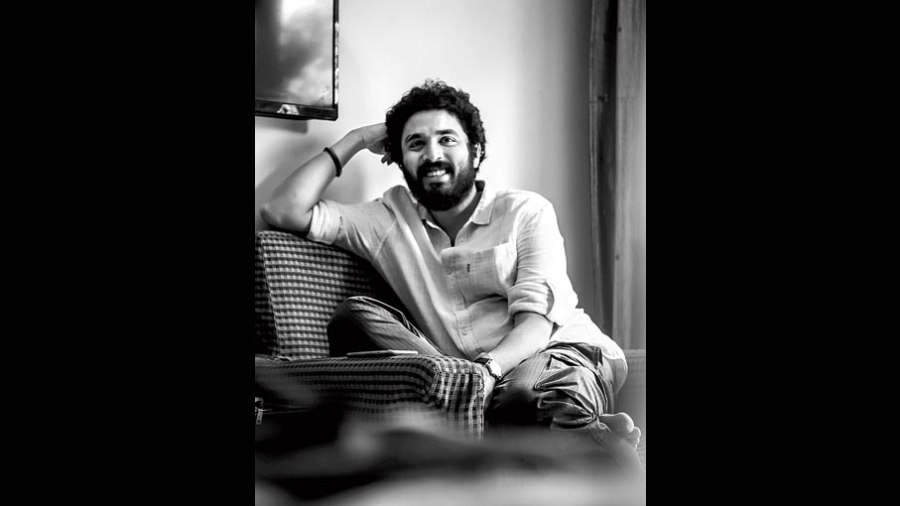
There needs to be more support from India, our industry and things should be rethought and restructured, otherwise film festivals become redundant. if things are not followed up on or capitalised on, It becomes pointless
— ADITYA VIKRAM SENGUPTA
Manikbabur Megh by Abhinandan Banerjee

Your debut film has been selected for screening and has been awarded at so many major festivals. How does it feel?
It is wonderful for any film-maker to have this social and universal validation . I believe it is a team effort. I think we are going through a good time. Not just from Bengal but from entire India, films are doing well. Natesh Hegde’s film (Pedro) did so well. We became friends during the festival. So that’s another beautiful thing about such festivals. It gives us the opportunity to connect with like-minded people, who are thinking about cinema and putting them on the map. It is a very enriching experience for me.
Last time we spoke, it was your first international festival screening. What has the audience response been like at successive festivals?
We received different reactions from different parts of the world. For me, cinema has a universal language and has no certainty, only probability. The multiple interpretation of one particular imagery in different minds, people belonging to different socio economic-structures is very interesting to me.
People were recognising the city, remembering Bangla, remembering Calcutta at our film screenings. Witnessing that has been a really wonderful experience. They were commenting on how they are seeing Calcutta captured on celluloid like this after a long time. There are people who have been in touch with Calcutta over the years through films alone.
It has been wonderful that I got to represent the nuances of my city through visuals and sounds. People at screenings mentioned this, too. We got a great emotional response. People talked about spiritualism after watching it. Different types of interpretations and exploration was the beauty of this journey. The emotional experience of people is what cinema gave me.
What is it about the film that clicked with the international audience?
Even before we started shooting and when I went around the city to explore the locations myself, I understood that the city was becoming a character in the film. The texture of the city and the sound was important in my film. The film is in black and white and it reminded people of the classics of Bengali cinema. People who have been to Calcutta and those watching the city for the first time on screen, both experienced the city in different ways through this film. It transported people to those golden years of Bengali cinema when Calcutta used to be a character in the films. For me the city wasn’t just a location but it became a character. This film reminded them of the Calcutta they have missed.
As a debut film-maker why did you choose to screen the film at festivals first before a commercial release?
I chose only one thing and that is to make a film with an honest and organic approach. I was 19 when I wrote Teenkahon (directed by Bauddhayan Mukherji) and a lot of producers came to talk to me after that about making different films. But even at that age, I knew what my first film would be. It had to be pure cinema of visual and sound. I was waiting for it. Though I wrote more than 100 stories and people made commercial releases with my stories, I was waiting for the right story to make my first film and then Manikbabur Megh happened. I didn’t decide the rest. Methodical filmmaking can take people to festivals and they have been successful, but I believe in the honest, organic and humble approach. I took two years to write the film but then how and where it will be shown was not on my mind. When I sat with my producers, they told me it should be a festival film based on my thoughts about the film. And it doesn’t mean that festival films cannot be commercial successes. We plan to have a national release of our film.
Yes, there are cases where the films can’t do the recovery. Once the film is written and the producers sit, that is when the market and distribution of the film should be decided. We travelled with the film and that is where regional cinema becomes world cinema. Festivals are looking for innovative and exclusive filmmaking style and creative vision of cinema. This is where the demarcation can be made, whether I am contributing to the evolution of world cinema or not. Then the beginning should be from festivals and the festivals will support such films. But if the film has been made just with a commercial purpose then one should go for a direct OTT or commercial release. It is wonderful that the film is travelling and I am learning but it was not planned.
Going forward, are such film festivals a ray of hope for independent film-makers as compared to commercial releases?
A lot of Bengali and Indian cinema made on a shoestring budget are brilliant films but due to lack of planning and exposure they are not getting recognised. They are not being able to reach the platform because they don’t have the producers who will push it through the doors. In such cases, platforms life Film Bazaar are helping. There should not be any rivalry in commercial and festival release, rather there should be a symbiosis. Now people are getting aware about labs, co-production. However, the innocence of creation should not be killed with the chaos of creation. Be it a festival or commercial, let the producers design the release.
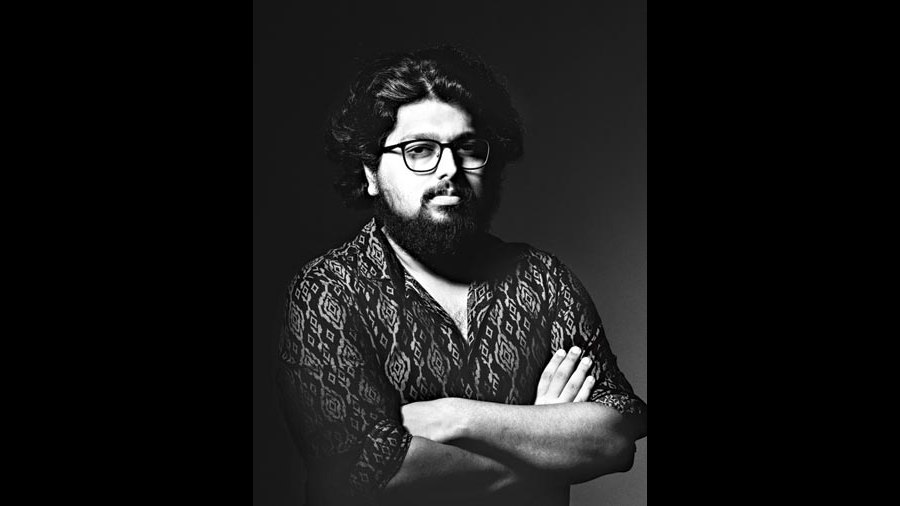
Abhinandan Banerjee
In recent times, Bengali language films are getting global attention through such festivals. Do you think this can bring about a change in the Bengali film industry and for the makers of Bengali language films?
First of all, I believe ‘industry’ is a myth. Nobody is making an Avengers here. Any creator should have their individual view about creation. Now, if five heads go ahead and create films that roam around the world, seeing them another five or 10 will join and the legacy will continue. During the time of Ray and Sen, films were travelling to great festivals. Then came Goutam Ghose, Aparna Sen and Rituparno Ghosh. But then for a long period of time this concept of doing the rounds at the festival had died.
Then Aditya’s film Asha Jaoar Majhe again opened up those doors, and we are here at a time where three-four films are travelling to a lot of festivals. I don’t believe in industry. I believe in being honest and working hard. And that will inspire aspiring film-makers to follow the path. Our job is to keep making good films. But if we keep making formula films, we will ensure a bunch of young minds will follow suit and end up making the same mistake. Such festivals are erasing barriers of states also. It is being celebrated as Indian cinema. That is beautiful. Beautiful films are happening around the country. The rise of good cinema, as a whole, will help each other.
Dostojee by Prasun Chatterjee
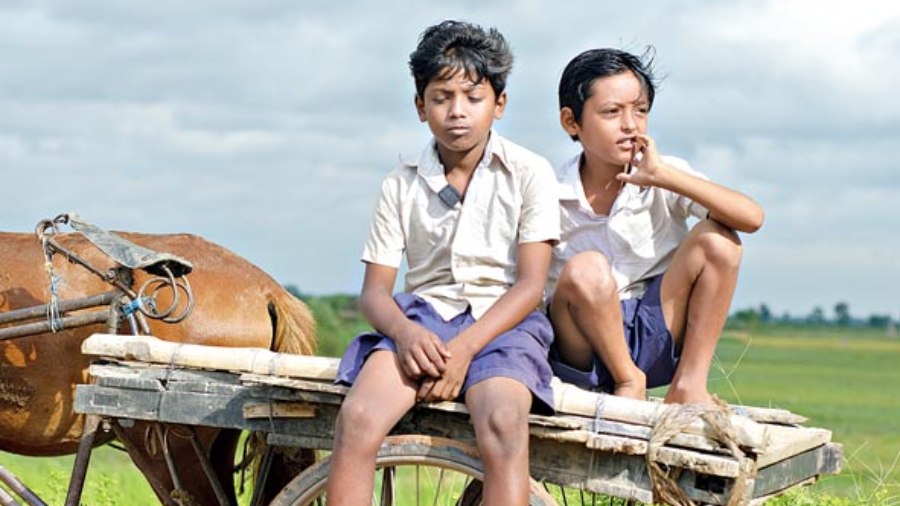
Congratulations on the worldwide success of your film at the festivals. It is your debut. How does it feel?
It feels great. I did not think so much while making the film. But I also realise that all these are transient. It will pass with time. But it is not my credit totally, everyone involved in the film made it happen.
Looking back at the past year, what has the journey with the film been, starting from staying at a small village to shoot it with local actors to creating a buzz in the festivals?
I stayed in the village for almost a year. It is the last subdivision in Murshidabad and we had to shoot as per the seasons. The film was completed last year, in September, and in October, it went to the 65th BFI London Film Festival. It was here that Satyajit Ray’s Apur Sansar was also screened. It has been travelling for a year now and has been to 26 countries till now. In another three months, it will go to seven more countries and eight international awards at the end of November. It’s been a long journey and as a human being I have also evolved with the film. It is hard to describe. Now, this doesn’t excite me as such. I have understood these are all bubbles. It will pass.
Are your actors from the local community aware of how far the film has travelled?
Now they understand. Journalists go to their village and they also came to Prosenjit Chatterjee’s house recently. Amitabh Bachchan also tweeted about the film. Now they know.
How did the story idea germinate and what clicked with the international audience?
I have not been able to answer this question. The story developed from a multitude of complex emotions. Subconscious played a big role. But there was a specific reason I chose to do the film there as I wrote the script there. So, the soundscape of the place, the location everything was important for the film. We had to do the film there, otherwise it could not be made.
Emotion is the reason it clicked with the international audience. A French woman and a village homemaker have very different lifestyles, everything is different about them, but when both these women lose their eight or nine-year-old child, the core emotion or the core feeling is the same. Just like the emotion of losing a friend is universal.
You are awaiting the commercial release of the film this month. Do you think the buzz it created in the festival circuit will help in its commercial success?
Yes, the buzz has been created. There is something called ‘a festival film’ and people think very differently about such films. But this is a highly mainstream film. It is full of emotions, emotions of childhood. After our interaction with so many different audiences around the world, we are confident that any person who will watch it once will encourage others to watch it. Every film like this has a struggle of its own. There is no need to complain or glorify it. The film had to go through its journey. It is not a star-driven film. But after doing the rounds at the festivals, we are now planning to release it not only in West Bengal but planning a pan-Indian release, too.
I had reached out to Prosenjit Chatterjee’s office because the kids wanted to meet him and I wanted to show him the film, too. He then watched it one night and couldn’t sleep. He got in touch with me and asked if any support was needed from his end. Prosenjit Chatterjee is now the presenter of the film in India. Then I told him about the kids and he asked us to give the kids a surprise and take them to his house. We never expected he would do so much and we are really grateful to him.

Prasun Chatterjee
Going forward, are such film festivals a ray of hope for independent film-makers as compared to commercial releases?
I am more of a box-office kind of person. Filmmaking is so costly as a medium. No matter how many festivals it travels to and how many awards it bags, at the end of the day if it doesn’t make money and the profit is not there then sustaining is difficult. I think both successes complement each other. The festival recognition gives the film a brand value. A niche film has probably gone to five festivals but is not a box office success. I am not that person. For me box office is important.
In recent times, Bengali language films are getting global attention through such festivals. Do you think this can bring about a change in the Bengali film industry and for makers of Bengali language films?
At the end of the day, content is king and the craft of storytelling is important. If the film is good, it will work in festivals and it will do well in the theatres, too. This, in turn, will help the industry.
Picture credits: Sourced from directors and producers

